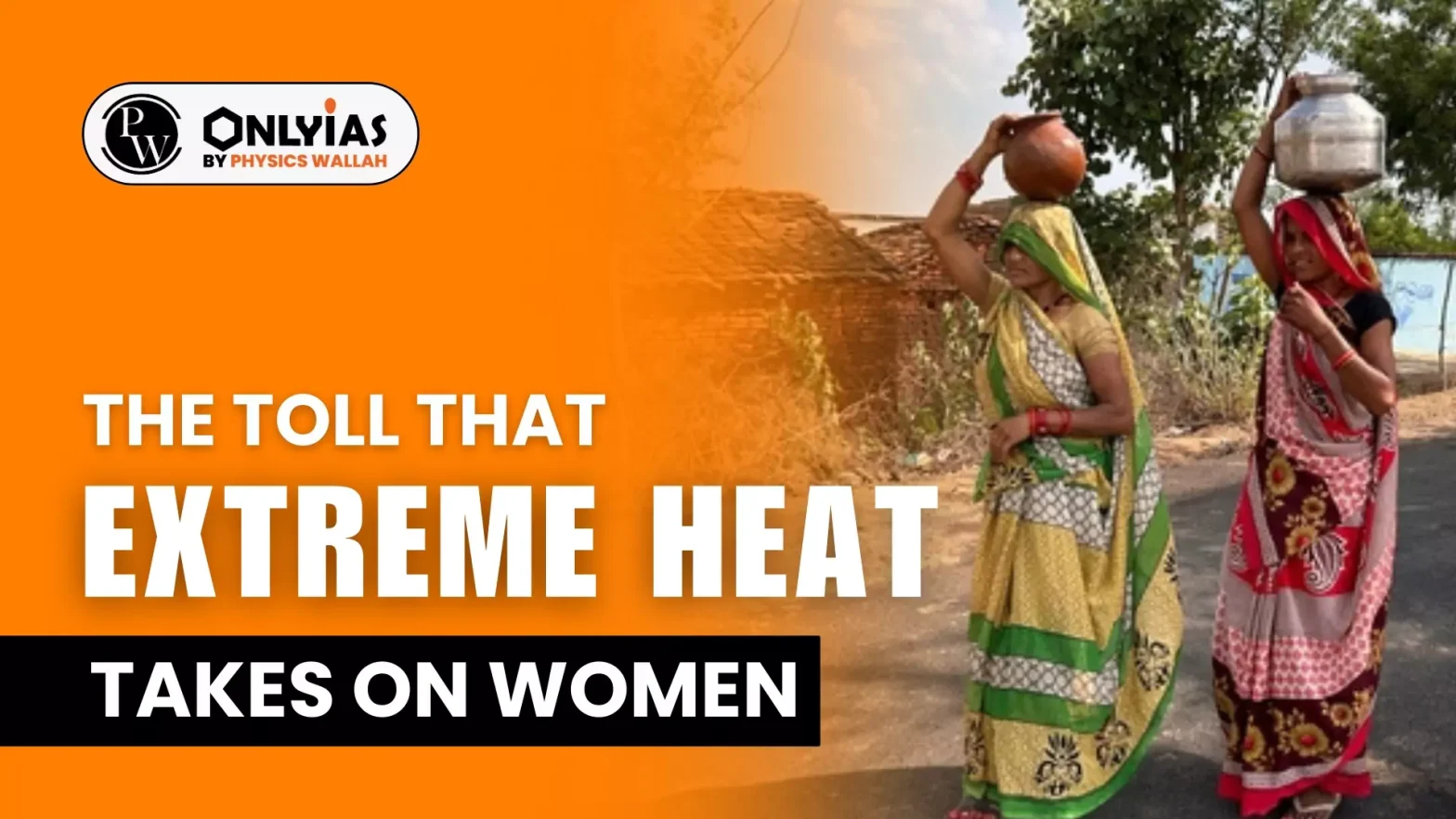Extreme heat is our planet’s norm for now and perhaps for years to come.
Extreme Heat
- The warmest year on record was 2023.
- Temperatures in several parts of India during May-June 2024 were reported to be record- breaking.
- Women are disproportionately harmed by extreme heat, largely because of unequal power dynamics, gender norms, and unequal access to resources, as reflected in the Global Gender Gap Index that places India at 18th rank from the bottom.
- Perhaps we should be alarmed by the numbers – India is home to more than one-in-six women in the world – and extreme heat is now their reality.
Enroll now for UPSC Online Classes
Hidden Toll
- A recent report by the ADB (Rising Above the Heat) highlights the unequal impact of extreme heat on women in Asia and the Pacific.
- For instance, women living in informal settlements in cities (also at the margins and in slums) face multiple challenges due to rising temperatures.
- Their homes could turn into heat chambers since the material used in informal, urban neighbourhoods, such as tin, asbestos, and plastic, trap heat.
- Women also toil in poorly ventilated kitchens, experiencing scorching temperatures while cooking. Rising temperatures are compounded by extreme time poverty and care burden for them.
- Due to lower productivity stemming from heat stress, women work considerably longer hours to complete their share of unpaid work at home.
- According to Arsht-Rock’s ‘Scorching Divide’ report, the productivity loss due to heatwaves translates to 90 more minutes of care work per day in India.
- This adds to the pre-existing gender differences in time-use pattern; in doing unpaid work like cooking, cleaning, and fetching water and fuel, women spend two and a half times minutes more per day than men (National Statistical Office 2019 data).
- Intriguingly, more than two-third of women’s productivity loss from heat strain occurs in the domain of unpaid labour in India.
- The loss also reflects opportunity costs associated with heat stress – that women could have earned extra income, acquired skills, or rested enough.
Worryingly Pervasive
- Urban female informal labourers face harsh weather, whether working in marketplaces, streets, construction sites, landfills, or even their employers’ homes.
- Due to their occupational settings, these casual-wage workers – street vendors, paid domestic helpers, construction workers, and sanitation workers are vulnerable to climatic extremes, reports the International Labour Organization (‘Work in a Changing Climate’).
- The situation worsens with energy poverty – living without cooling facilities such as ventilated spaces, fans, air conditioners, or coolers.
- Greenery and other natural forms of cooling are also becoming increasingly unavailable for public consumption in dense urban areas.
- Furthermore, water scarcity and power fluctuations raise the challenge of being hydrated and staying comfortable.
- The situation in rural India is equally severe.
- Consider the daily routine of a woman in a heatwave-affected rural area: she begins her morning cooking using biomass over a hot stove, bearing the brunt of ensuing disease burden.
- Since 56.8% of rural Indian families cook on biomass (NFHS-5), acknowledging the extent of this public health hazard is essential.
- Women’s days also involve longer working hours under heat stress.
- If she does home-based work inside the living area with asbestos or tin roofing, temperatures could become unbearable, making labour increasingly unsafe.
Check Out UPSC NCERT Textbooks From PW Store
Conclusion
Extreme heat disproportionately impacts women in India, exacerbating existing gender inequalities and posing significant health, productivity, and safety challenges, especially in informal and rural settings.
![]() 16 Jul 2024
16 Jul 2024
